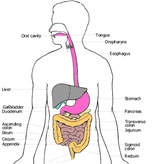
Early Symptoms of Diabetes
Early Symptoms of Diabetes
Recently Diagnosed
An Overview for the Recently Diagnosed – What is Diabetes?
Diabetes is a very common hormonal disease in which the body has difficulty changing sugar to energy and cell building material. Most carbohydrates that we eat are broken down to simple sugars like glucose. There are three basic types of Diabetes: Type 1 , Type 2 and Gestational Diabetes. The basic difference between these types is that Type 1 Diabetics do not produce insulin , Type 2 Diabetics do not properly use insulin, even though they produce it, and Gestational Diabetics develop high blood sugar levels during their pregnancy.
If you have recently been diagnosed with Diabetes, you are not alone; According to the Center for Disease Control and Prevention (CDC) Diabetes affects over 23.6 million Americans and only about two-thirds of Diabetics even know that they have the disease! Once youÕre diagnosed, you should focus on adopting a healthier lifestyle that will allow you to live a happy life with more energy, less side effects and, often, with a smaller waist!
Understanding Diabetes may take some time. But rest assured that after the initial shock of your diagnosis, you will enjoy the way your body reacts to your Diabetic practices and lifestyle changes. First, you must understand what your disease entails and how you can treat it.
 Let’s start with an understanding of Carbohydrates (interactive) and the fundamental role it plays in the disease.
Let’s start with an understanding of Carbohydrates (interactive) and the fundamental role it plays in the disease.
How Diabetes works:
When a person consumes foods with sugar, the pancreas should release insulin , which helps to break down and store sugar molecules for later use as energy. Energy from sugar helps all muscles and organs in the body function, including the brain and heart.
However, when someone has Diabetes, his or her pancreas does not produce enough insulin to store sugar or convert sugar molecules into usable energy units. As such, the sugar stays in the blood stream, where it irritates the organs through which it passes, but keeps those organs from getting the energy that they need to function properly.
Click here for a more detailed explanation of how Diabetes affects the body. Alternatively, another interactive module teaches more about the fundamentals of Diabetes, click here.
Click Image: To Enlarge Digestive System
Controlling your diabetes means controlling your blood sugar levels First you must know what your number is, then you can try to control it.


